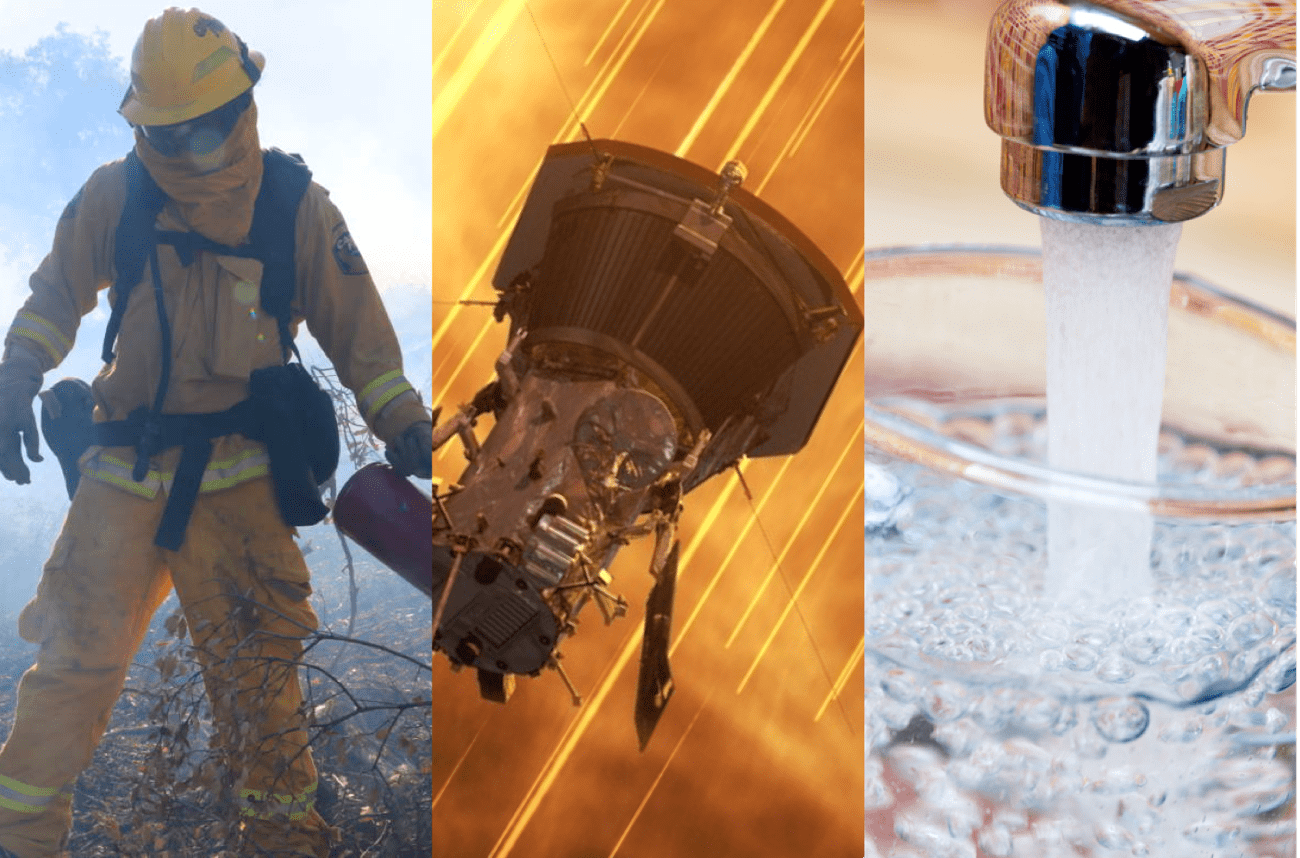2018 Year In Review: Wildfires, Space Probes, And CRISPR
46:19 minutes

In 2018, natural disasters around the world bore the unmistakable fingerprints of human-caused climate change. The federal government’s 1,600-page National Climate Assessment predicted even more extreme events—floods that destroy infrastructure, warming that spreads disease, and deadly record high temperatures. But global carbon emissions set a new record this year, and experts say that humanity is nowhere close to meeting its goal of limiting total temperature increases to 2 degrees Celsius.
It was also a red-letter year for space missions. NASA launched the Parker Solar Probe to get a closer look at the sun’s corona. And after nine years of detecting exoplanets, the Kepler Space Telescope finally ran out of fuel. In the world of medicine, scientists grappled with the ethical questions concerning human gene editing, many of which are still unanswered.
Sarah Kaplan, science reporter for the Washington Post, and Rachel Feltman, science editor with Popular Science, join Ira to discuss the year in science news.
Plus, we check back in with a few of the State of Science stories from this year including conservation projects in Wyoming, lead levels in Chicago drinking water, and the algae blooms that formed off the coast of Florida.
Read the 2018 National Climate Assessment. [U.S. Global Change Research Program]
Learn more about rising carbon emission levels. [Washington Post]
Invest in quality science journalism by making a donation to Science Friday.
Sarah Kaplan is a science reporter at the Washington Post in Washington D.C..
Rachel Feltman is a freelance science communicator who hosts “The Weirdest Thing I Learned This Week” for Popular Science, where she served as Executive Editor until 2022. She’s also the host of Scientific American’s show “Science Quickly.” Her debut book Been There, Done That: A Rousing History of Sex is on sale now.
Katie Feather is a former SciFri producer and the proud mother of two cats, Charleigh and Sadie.